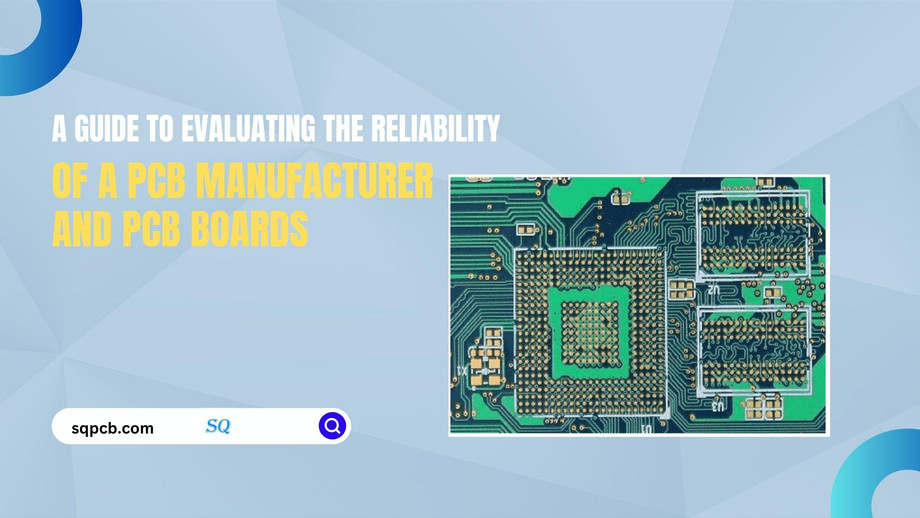A Guide to Evaluating the Reliability of a PCB Manufacturer and PCB Boards
In the realm of electronics, printed circuit boards (PCBs) serve as the backbone of virtually every electronic device we encounter in our daily lives. From smartphones to medical equipment, PCBs play a critical role in providing connectivity and functionality. However, the reliability of these PCBs heavily depends on the manufacturer's quality standards and processes. Therefore, when sourcing PCBs for your project, it's imperative to thoroughly evaluate the reliability of the manufacturer and the boards they produce. Here's how you can do it:
- Assess Manufacturing Standards and Certifications: Begin by investigating the manufacturer's adherence to industry standards and certifications. Look for certifications such as ISO 9001, ISO 13485 (for medical devices), or AS9100 (for aerospace applications). These certifications indicate that the manufacturer follows rigorous quality management systems, ensuring consistency and reliability in their processes.
- Review Manufacturing Processes: Delve into the manufacturing processes employed by the PCB manufacturer. Understand how they handle design validation, component sourcing, assembly, and testing. Manufacturers utilizing advanced techniques such as automated optical inspection (AOI) and X-ray inspection tend to produce more reliable PCBs with fewer defects.
- Quality of Materials Used: Inquire about the materials used in PCB fabrication. High-quality materials, including substrates, copper foils, and solder masks, are essential for the reliability and performance of the final product. Ensure that the manufacturer sources materials from reputable suppliers and conducts thorough incoming material inspections.
- Track Record and Experience: Evaluate the manufacturer's track record and industry experience. A long-standing reputation for delivering reliable PCBs speaks volumes about their capabilities. Look for customer testimonials, case studies, or references to gauge their past performance and customer satisfaction levels.
- Compliance with RoHS and REACH Regulations: Confirm that the PCB manufacturer complies with environmental regulations such as the Restriction of Hazardous Substances (RoHS) and Registration, Evaluation, Authorization, and Restriction of Chemicals (REACH). Compliance ensures that the PCBs are free from harmful substances and meet environmental standards.
- Reliability Testing Procedures: Inquire about the manufacturer's reliability testing procedures. Robust testing, including thermal cycling, vibration testing, and accelerated aging tests, helps identify potential weak points in the PCB design and ensures its durability under various operating conditions.
- Supply Chain Management: Evaluate the manufacturer's supply chain management practices. A resilient and transparent supply chain reduces the risk of component shortages, delays, or counterfeit parts, which can compromise the reliability of the final product.
- Documentation and Traceability: Ensure that the manufacturer provides comprehensive documentation and traceability throughout the production process. Detailed documentation, including manufacturing records, inspection reports, and traceability of components, facilitates troubleshooting and quality control.
- Customer Support and Communication: Assess the manufacturer's level of customer support and communication. A responsive and proactive manufacturer that collaborates closely with customers can address issues promptly and provide valuable insights into optimizing PCB designs for reliability and performance.
- Post-Sales Support and Warranty: Finally, inquire about the manufacturer's post-sales support and warranty policies. A warranty covering defects in materials and workmanship demonstrates the manufacturer's commitment to standing behind their products and ensuring customer satisfaction.
In conclusion, evaluating the reliability of a PCB manufacturer and the boards they produce requires a comprehensive assessment of their manufacturing standards, processes, materials, track record, and customer support. By following these guidelines and conducting due diligence, you can partner with a trustworthy manufacturer capable of delivering high-quality and reliable PCBs for your applications.



Comments
Post a Comment